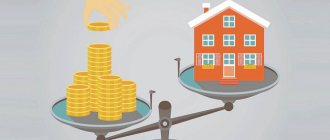Home / Tax benefits and deductions / Which utilities cannot be disconnected for debts
For the most part, Russian citizens pay utility bills in good faith, regardless of financial difficulties. But rising tariffs and the unstable economic situation in the country sometimes deprive people of the opportunity to pay for utilities. The resulting debt leads to litigation and sometimes even power outages .
Do you know whether it is legal to shut off utilities for non-payment?
Suspension or restriction of public services is a fairly applicable practice; there are cases when the contractor suspended water drainage by installing a plug and sealing the drain pipes; as a rule, in the case of such a restriction/suspension, debtors paid for utilities on the same day or the next, since the water from their the apartment did not leave, and they were deprived of the opportunity to use the sanitary equipment in their premises completely. There are also cases of power outages, this is especially true in houses equipped with electric stoves. First of all, in order to protect the executor, it is necessary to correctly draw up a notice to the debtor and check for errors in the accruals. If the contractor fulfills all the conditions provided for in Decree of the Government of the Russian Federation No. 354 of May 6, 2011, then there should be no risks.
Utilities that cannot be disconnected
It is illegal to stop providing the debtor with certain utilities. So, for non-payment, they cannot turn off cold water (but they can turn off hot water) and heating during the cold season. Additionally, utility services do not stop being provided to those debtors who live in a house where it is technically impossible to disable the provision of some service only in the debtor’s apartment.
In cases where termination of the provision of utility services is not prohibited by law and is technically feasible, the debtor may well be left without comfortable living conditions until the debt is repaid. Representatives of specially authorized organizations can invite an electrician to de-energize the apartment, gas workers to turn off the gas, stop the supply of hot water, and even block the apartment residents’ access to the sewer system.
The state is ready to provide assistance in the form of deferred payments and subsidies for vulnerable segments of the population: low-income families and families with whom a disabled dependent lives. Also, if the debtor does not receive wages for a long time for reasons beyond his control, you can take a certificate from the place of work in order to postpone the need to pay for the services used. By the way, what documents are needed for a rent subsidy can be found in this article.
There are many ways to pay for your used utilities in installments, so don't put off paying off your debt until a critical moment. Legal proceedings may be opened against persistent defaulters, which will entail confiscation of property and even eviction from a municipal apartment.
Watch the video about the power outage:
Procedure and features of power outages for non-payment of utilities in 2020
If the disconnection occurred improperly, the subscriber can file a complaint against the company’s actions, and in addition, it is possible to force the management company to reimburse the cost of moral damage in court. In accordance with Article 546 of the Civil Code of the Russian Federation and Government Decree No. 354, it is not allowed to turn off the power supply without prior notice to the user. If a citizen has not received a notice from the Criminal Code about a possible suspension of electricity supply, he can:
Can sewerage be turned off for non-payment?
Is it legal to cut off electricity, water, gases and other communications? Only in the case when a person develops debts. Moreover, fines and penalties, as well as measures to stop providing the apartment with utilities, will not be applied immediately after the first non-payment; most often the debt accumulates up to a certain amount. If the power can be turned off after the second non-payment, then the water or sewerage will be shut off after a few months. That is, the timing of application of measures may also vary depending on the type of service.
This is interesting: What additional benefits are provided to labor veterans in Khimki?
Rights of management companies to turn off power in case of debts
- disconnection of a utility service must be proportionate to the violation committed by the owner. For example, if the debt is only 300 rubles, then you cannot turn off the light because of this, because turning it off will deprive a person of the opportunity to live comfortably in the apartment;
- Disabling the service cannot go beyond the actions that are necessary to eliminate the violation of the law. In other words, disconnection is possible only when there are no other mechanisms of influence on the debtor. For example, a management organization must warn a person about the debt that has arisen and provide him with a deferment or installment plan to pay for utilities. Only after the possibilities for a “peaceful” solution to the situation have been exhausted can utilities be turned off;
- disconnecting a utility service should not pose a threat to the life and health of others. This means that shutting off a utility service cannot cause harm to persons who are not debtors. For example, a single mother with a child lives in an apartment. The owner of the apartment is the mother and she must pay for utilities. It often happens that when there is no money, debt arises. Turning off the water in this situation jeopardizes the child’s health, so turning off the water is impossible.
This is interesting: Where is it necessary to obtain a Certificate of Absence of Registration in a Residential Building Which Belongs to the Organization
Why can the water be turned off?
09:30 22 November 2020 Society
Turning off water in an apartment for non-payment, penalties - employees of the Gomelvodokanal Municipal Unitary Enterprise often have to resort to such unpopular measures. How and why does this happen? This was reported in the subscriber department of the Communal Unitary Enterprise "Gomelvodokanal".
ACCOUNTING LEADS TO SAVINGS
Currently, 98 percent of the population of Gomel pays for the provision of water supply and sewerage services using individual water consumption meters. This fact, as well as the introduction of remote readings from meters (so far in several residential buildings), as statistical data show, has led to a reduction in the volume of water consumption by citizens (who installed the devices) to 60 percent or more. The average daily consumption in these cases is 120-130 liters. This is less than the standard of 140 liters, within which subsidized tariffs apply. However, out of the total number of consumers of water supply and sanitation services, approximately every fifth city resident exceeds the water limit.
In Gomel, to accrue non-cash housing subsidies to families who are unable to pay for housing and communal services in full (according to Decree of the President of the Republic of Belarus dated August 29, 2016 No. 322 “On the provision of non-cash housing subsidies”), a unified information system for payments for housing and communal services has been introduced and others ).
After the implementation of this system, starting in June 2020, the Gomelvodokanal Municipal Unitary Enterprise gradually transferred calculations and charges for water supply and sanitation services to Gomel consumers to authorized organizations that have the right to accrue non-cash housing subsidies. In the new system, when paying, after entering the meter data, the word “recalculation” and the amount to be paid appear. This recalculation amount is a payment for all utilities in the apartment, and not a recalculation for water.
“By the way, you need to know...
According to Resolution of the Council of Ministers of the Republic of Belarus No. 571 of June 12, 2014, the consumer must notify the Gomelvodokanal Municipal Unitary Enterprise within one billing period after discovering that the water meter has failed. If this is not done and it turns out that payment was made according to non-existent indications, from the moment of the last consumer inspection by an employee of the Gomelvodokanal Municipal Unitary Enterprise, you will have to pay for the service according to water standards for unmetered consumers and tariffs that ensure full reimbursement of the economically justified costs of their provision.
BREAKING THE SEAL, ARGUMENT AND OTHER DEVICES
To accurately pay for services, it is important to take readings correctly. As inspections carried out by employees of the subscriber service of the Communal Unitary Enterprise "Gomelvodokanal" show, they traditionally identify the following violations: broken seal on an individual water flow meter; violation of the antimagnetic seal (sticker) on it as a result of exposure to a magnetic field on the meter; a malfunction of the meter, which was not reported to the enterprise by the consumer in a timely manner; unauthorized connection to the centralized water supply without the permission of the enterprise; connecting the water supply past the water flow meter and the like. For all of the above violations, the current legislation provides for penalties.
If an unauthorized connection or connection past the metering device is detected, a charge is made for the amount of water consumed, determined by the capacity of the water supply input (connection) at a water speed of 2 m/s and its full cross-section operating for 24 hours a day. In 2020, with an input pipe cross-section of 15 mm, the charges amount to 802.68 rubles. This is a lot of money, and the population should think about whether it is worth being cunning. If we move on to the numbers, over the 10 months of this year, the Gomelvodokanal Communal Unitary Enterprise identified 157 cases of unauthorized connection to the city water supply network.
«
Only after taking all measures of persuasion and coercion is the enterprise forced to take such extreme measures as disconnecting malicious debtors from the city water supply network.
As of November 1, 2020, such measures were taken against 380 debtors.
Subsequent connection is only at the expense of the consumer after repayment of the debt. Also, if there are systematic non-payments, citizens may be evicted from their occupied premises. THE SITE WILL TELL YOU
To prevent offenses, legislative acts are posted on the company’s website, and information on violations identified and measures taken is regularly updated. Let us remind you what penalties are provided for tricks. For a broken seal, violation of an antimagnetic seal (sticker) or a faulty meter, charges for water supply and sewerage services are made according to the standards approved by local executive and administrative authorities, from the date of the last reliable reading of water consumption meters by the controller of the Communal Unitary Enterprise "Gomelvodokanal" using the tariff, ensuring full reimbursement of economically justified costs for their provision. Over the 10 months of 2020, representatives of the company identified underpayments on individual meters from 1,390 consumers. The volume of water consumed was calculated in the amount of 175,060 cubic meters. m in the amount of 255.98 thousand rubles.
«If an unauthorized connection or connection past the metering device is detected, a charge is made for the amount of water consumed, determined by the capacity of the water supply input (connection) at a water speed of 2 m/s and its full cross-section operating for 24 hours a day. In 2020, with an input pipe cross-section of 15 mm, the charges amount to 802.68 rubles. This is a lot of money, and the population should think about whether it is worth being cunning. If we move on to the numbers, over the 10 months of this year, the Gomelvodokanal Communal Unitary Enterprise identified 157 cases of unauthorized connection to the city water supply network.
ATTENTION: TYPICAL ERRORS
Employees of Gomelvodokanal draw the attention of city residents to the typical errors identified when paying for water supply and sewerage services. Some townspeople do not take monthly readings from their meters and write them at random. The numbering of meters specified in the contract is not observed, which ultimately leads to confusion of readings and charges for heating, including for cold water. When paying, it is necessary to indicate the latest meter readings, and not the volume of water - this will allow the subscriber to control the correctness of charges. When installing two or more water meters for cold or hot water, when paying, it is necessary to indicate the readings separately for each of them, and not add up the volumes. After making the calculations, you must carefully check on the spot the month of payment, indications, personal account, and amount stamped in the receipt.
By the way, you need to know that, according to Resolution of the Council of Ministers of the Republic of Belarus No. 571 dated June 12, 2014, the consumer must notify the Gomelvodokanal Municipal Unitary Enterprise within one billing period after discovering that the water meter has failed. If this is not done and it turns out that payment was made according to non-existent indications, from the moment of the last consumer inspection by an employee of the Gomelvodokanal Municipal Unitary Enterprise, you will have to pay for the service according to water standards for unmetered consumers and tariffs that ensure full reimbursement of the economically justified costs of their provision. Also, at present, despite the almost one hundred percent current collection of payments, the issue of the population’s debt for water supply and sanitation services remains relevant. It is largely accumulative in nature, that is, there is a certain group of the population that, for a number of reasons (mainly material and social in nature), does not pay the debt for several months and even years (the poor, the unemployed, large families and others).
DO NOT ALLOW TO SHUT OFF
Despite the absence of an increase in the number of debtors and significant changes in their qualitative composition, an increase in tariffs entails an inevitable increase in overdue receivables in monetary terms. KPUP "Gomelvodokanal" is constantly working to collect debts from defaulters. Statements of claim are filed in court, and the defaulters' place of work is notified of the existence of debt. Over the 10 months of 2020, 150 notarial inscriptions were prepared for 70.08 thousand rubles, 225 statements of claim for 137.16 thousand rubles.
Only after taking all measures of persuasion and coercion is the enterprise forced to disconnect defaulters from the city water supply network. As of November 1, 2020, such measures were taken against 380 debtors. Subsequent connection is only at the expense of the consumer after repayment of the debt. Also, if there are systematic non-payments, citizens may be evicted from their occupied premises. Therefore, KPUP Gomelvodokanal asks everyone to make the necessary payments in a timely manner and in full. This allows housing and communal services enterprises to provide the city population with uninterrupted and high-quality provision of housing and communal services.
You can’t turn off heat and water even for debts
- The company supplying the resource sends a notice to a specific consumer indicating the amount of debt. If the presented invoice is not paid within a month, a temporary restriction on the provision of services is introduced;
- When payment is not received, the service is subject to permanent termination. And, in this case, the consumer receives a notice in which three days are allocated to liquidate the debt;
- This is followed by sealing of equipment, inside or outside the home, metering devices related to a particular service;
- Seals should be removed free of charge when repaying a debt, however, in practice situations arise when persons reconnecting the service make demands for payment for their work.
The procedure for turning off hot and cold water or depriving water supply for rent arrears
With all organizations that provide utility services, consumers must certainly enter into agreements in which the areas of responsibility of both parties will be clearly stated. After all, a deterioration in the quality of service provision may become a valid reason for residents to reduce their level of payments.
Consumer responsibility to housing and communal services or how to avoid becoming a willful defaulter?
- Pay the accrued amounts in full, preferably in one payment. After funds are received into the account of the management company or water utility, within two days the water supply will be resumed and all plugs from the sewer drains will be removed. This procedure must also be paid by the person from whom the debt is collected.
- If your financial situation is quite deplorable and you cannot afford to pay off the entire amount of the accumulated debt, however, you have a desire to cover the debt, then the utility services can and probably will meet you halfway. What to do? In such a situation, it is envisaged to conclude an agreement between the subscriber and the resource provider on the restructuring of the stuck debt. This means that the amount you must pay is divided into parts that are repaid within the terms specified in the contract. And then the water will return to your home again.
Power cut off for non-payment of utilities
In addition, disconnecting a utility service should not pose a threat to the life and health of others. This means that service disconnection cannot cause harm to persons who are not debtors. For example, if a mother and child live in the apartment. The owner of the apartment is the mother and she must pay for utilities. It often happens that when there is no money, debt arises. Turning off the water in this situation jeopardizes the child’s health, so turning off the water is impossible.
This is interesting: Benefits for wives of contract military personnel in 2020
Do they have the right to turn off water for non-payment?
Utility companies have the right to restrict owners’ access to housing and communal services only within the framework of the law. The sphere of housing and communal services is regulated by Government Decree No. 354 of 05/06/2011.
For non-payment of utilities, suppliers can deprive residents of the opportunity to use not only gas, heating, but also hot and cold water. If this did not happen according to the law, then you can safely file a complaint against the Criminal Code.
Restriction or complete ban on access to housing and communal services is possible only after prior notification of the owners. Without warning, the management company does not have the right to limit residents' water consumption, even if the debt persists for 3 months or more .
In such cases, it is better to immediately find out your debt on the Internet for utilities and quickly pay housing and communal services without commission through government services.
According to the law, due to the debts of the management company, shutting off cold and hot water supply is possible both in a private house and in an apartment. The reason for taking strict collection measures against debtors in the form of a complete restriction on water supply is debt for 3 or more months. But the company can send a notice of water shutoff starting from the 1st month of non-payment.
The law allows planned shutdowns during preventive maintenance. In this case, the management company is obliged to notify residents 3 days before the planned restriction .
For example, in Balashikha, 40 days before the water supply was limited, information appeared on the city portal about turning off hot water.
It is prohibited to restrict access to housing and communal services for the debts of neighbors in an apartment building . Residents also cannot be deprived of water supply if the company owes money to another supplier.
Example: in Pushkino (Moscow region), Pushkinskaya Heating Network OJSC turned off hot water due to debt to Gazprom. Even those residents who regularly paid their bills were left without water supply.
Is it legal to turn it off without a court order?
The legislation of the Russian Federation provides for the liability of the management company for illegal water shutoffs:
- Administrative responsibility. In this situation, officials must pay a fine in the amount of 500 to 1000 rubles, and legal entities from 5 to 10 thousand rubles. The above measure is applied by regulatory authorities. However, before this they must establish the fact of a violation (article number 19.1 of the Code of Administrative Offenses);
- Criminal liability. It is established by the court in a situation where the owner of real estate has suffered moral or material harm. In this situation, the supplier will have to pay a fine of up to 200 thousand rubles. In addition, he may be imprisoned for up to three years. If a person dies as a result of illegal actions of representatives of the management company, he can be imprisoned for up to five years. Plus, he is prohibited from holding leadership positions for three years;
- For arbitrariness, a fine of 80,000 rubles (or six salaries) will be imposed. Also, in this situation, the perpetrator may be sentenced to forced labor for 200 hours.
If it is proven that the debtor was threatened, the perpetrator will be imprisoned for six months. In exceptional situations, the term can be increased to five years (articles numbered 215 and 330 of the Criminal Code of the Russian Federation).
In a situation where the fact of illegal water supply is proven, representatives of the management company must restore the water supply within three days and also make a recalculation.
The procedure for turning off water to dishonest or unscrupulous consumers of utility services without a court decision is absolutely legal. But only on strictly defined grounds listed in Government Decree No. 354 (clause 119, paragraphs a, b, c): if there is a debt in the amount of two monthly payments according to the standard and its non-payment, improper maintenance of hot water communications in the apartment, illegal connection.
Turning off cold water is unacceptable under any circumstances. This is explained by the fact that the constitutional rights of the citizen will be violated, and the sanitary well-being of the entrance or home will also be endangered.
Disconnection cannot occur spontaneously or suddenly; this should be discussed in more detail. It is planned 30 calendar days before the service is disconnected. The HOA is sent to the debtor by mail 30 days before the expected date of restriction of the provision of utilities. It happens like this:
- details of the debtor - his full name, address of the premises where the debt arose;
- account number;
- the period during which debts for utility bills have accumulated;
- amount to be paid;
- The date by which the debt must be repaid.
If the debtor did not react in any way to the letter received and did not pay at least part, then the Criminal Code has the opportunity to restrict the filing. You don’t have to worry about cold water - turning it off is not allowed. And hot food is limited in consumption for a month. If during this period the owner of the apartment building does not pay at least part of the debt, then a disconnection occurs.
This does not mean that nothing needs to be done now. Shutting off the water in your home does not mean that the need to pay bills has disappeared, or that the debt has been written off or forgiven. The HOA takes the apartment owners to court in order to recover all costs and debt. It will consist of all the costs that Vodokanal incurred in trying to repay the full amount of the debt. It will include not only the water spent on the meter, but also fines and penalties for non-payment, costs for a courier to deliver letters, and possible costs for shutting off the water in the basement of the house. In all cases, it is better not to wait for a court decision and start paying the debt.
When the management company applies for a court verdict:
- No payment for 3 consecutive months of using the service for one year. The amount that has accumulated during this time does not matter and may be negligible.
- The owner of the premises was notified of the upcoming measures in the correct manner.
If the employees of the management organization do not have a document in their hands in which the owner is notified of the upcoming restrictions, then disconnection is impossible. The HOA and Vodokanal cannot turn off the water - they have no evidence of the awareness of the owner of the living space. The court considers each case in detail, finds out the reasons why the payment violation occurred.
If there are good reasons, the case is considered in more detail, additional hearings may be scheduled, the terms of settlement with the utility organization may be extended, and penalties and fines will be waived. If the refusal to pay is made intentionally, then the owner is obliged to pay the service provider in a short time.
In cases where the actions of the management company are unlawful for any reason: turning off cold water along with hot water, shutting off the pipeline in the entire house due to one tenant, or committing other unlawful actions, the citizen must react as follows:
- Send a letter to the Management Company containing a written request to return the supply of the service and recalculate it for the time when it was not available.
- When the water in the tap does not flow within three working days, you need to write a claim and send it to three places - Rospotrebnadzor, the Criminal Code and the district prosecutor's office.
In the event of unlawful actions, the homeowner has the right to write a request to the magistrate’s court and demand restoration of the supply of services along with moral compensation. It is important to attach supporting documents - witness statements, photos or videos that will confirm the fact that there is no water in the tap.
We suggest you read: What you need to change your tractor license
The fine can increase to 200,000 rubles or 3 years in prison. If a water supply shutdown results in the death of a person, the term of imprisonment may increase to 5 years. The head of the organization is banned from holding leadership positions for 3 years. Arbitrariness is punishable by a fine of up to 80,000 rubles.








